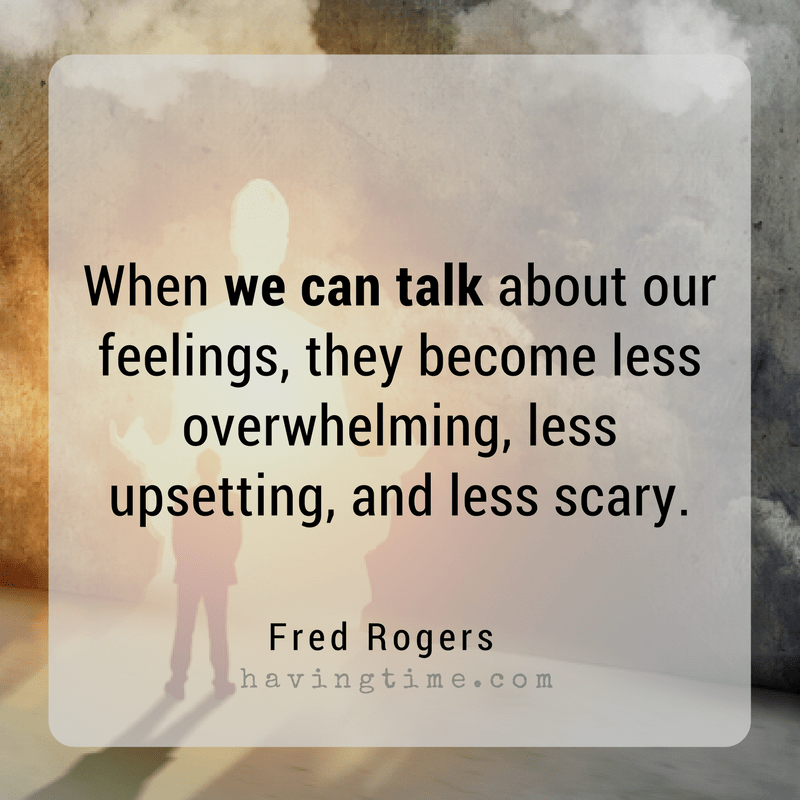Anyone who has ever experienced anxiety knows the feeling. No matter what you do, your mind won’t stop racing, and you can’t seem to slow your thoughts down. Everything, from your personal relationships to your health to your work –– feels like your entire life is spinning out of control.

But there are ways to slow things down and catch a breath. By practicing mindfulness, taking care of your health, setting realistic expectations, talking to loved ones, and enjoying some “me” time, you can help set your mind back on track and stop it from spinning out of control.
1. Practice Mindfulness
Yoga and meditation have been around for thousands of years because of their uncanny ability to slow down your thoughts, stay present and hit the reset button.
Even if you’ve never stepped foot in a yoga studio, practicing daily mindfulness is a great way to help you feel more in control of your life.
Try the following exercises to infuse a little mindfulness into your regular routine:
- Keep a Gratitude Journal
Every morning or evening, spend some time writing five things you were grateful for that day. Instead of using your phone, keep a physical, pen-and-paper gratitude journal by your bed so you don’t forget to take this time.
Choose a journal you love to help the habit stick! This time of gratitude will help you decompress and feel grateful for the things you can control, rather than anxious about the things you can’t.

- Do Breathing Exercises
Do a quick, 5-10 minute breathing exercise every day. The exercises could be as simple as taking five long, deep breaths when you start to feel stressed.
Simple things like this can help you take a break from the stressors of your day and feel less like things are spinning out of control.
- Yoga
Many experts talk about why you should find time to do yoga every day.
Practicing yoga, either at home or in a studio is a great workout, and the practice is focused around spirituality, mindfulness, and relaxation.
2. Take Care of Your Health
In addition to finding small ways to incorporate mindfulness into your everyday life, try to find ways you can take care of both your mental and physical health.
Putting your health first will help you control anxiety, stress, and feelings of things spinning out of control. Below are some simple ways to take care of your mind and body:
- Finding Smalls Ways to Be Active
Hitting the gym five times a week or running a marathon might not work for everyone, but don’t be discouraged. To improve your health and productivity in a practical way, find small ways to be just a little bit more active.
Think about taking the stairs instead of the elevator, parking farther away and walking to the store, taking 10 minutes every hour to walk around your office building, or taking your dog on a little longer of a walk every day.
These changes may be small, but they will have a significant impact on your well-being.

- Pack Your Own Lunch
One of the easiest ways to take control of your health is to plan your meals out ahead of time to avoid the last minute pitfalls of eating unhealthily.
While splurging is okay once in a while, you’ll feel a lot better if you plan healthy meals and snacks out ahead of time. That way, you’ll never be caught without a plan!
3. Taking Care of Your Mental Health
Taking care of your mental health is just as important as getting a little exercise. We put our brains through so much during the day that it’s no wonder we’re often plagued with anxiety or exhaustion. Thankfully, health tracking technology makes it easier than ever to know when you need a break.
Taking care of your mental health should be a priority number one. Simply set aside time to meditate, do yoga, listen to a guided meditation, or just lay down! Apps like Headspace, Calm, and MINDBODY make it easy to get started.
4. Set Realistic Expectations for Yourself
One way to reduce anxiety and feel better is to set realistic goals for yourself. We are hit with countless goals from work, our families, and ourselves.
Take a second to look at these goals, figure out what can and can’t be done, and address them accordingly. You don’t have to do it all, and it’s ok to renegotiate the things on your plate.
One way to set realistic expectations for yourself is to set SMART goals. SMART goals will help you remember that you don’t have to be perfect, you just have to keep moving forward. SMART goals are:
- Specific
- Measurable
- Actionable
- Relevant
- Timely
For example, consider a weight-loss goal. By saying your goal is to lose weight, you are setting yourself up for failure because you have no milestones to hit, nothing to compare your goal against, and no tangible next steps. Large, vague goals like this lead to frustration and anxiety.
Instead consider setting your goal up like this: “I want to lose 30 pounds (specific and relevant). I want to do this in 8 months (timely). I will check in every week and record my progress (actionable). To do this, I will cook five meals a week instead of eating out and exercise for an hour a day (measurable).”
Notice the difference? The second goal is much more tangible, and by setting smaller goals in between, you can feel good about your progress and less anxious about the future.
5. Talk to Those Around You
While there are plenty of things you can do yourself to limit the feelings of your life spinning out of control, sometimes talking it out with loved ones or a professional is the answer.
If you have a strong group of supportive friends and family, that’s great! Use them as a support to feel better about your anxiety or stress. If you think talking to a therapist is the best route, don’t be ashamed to meet with one. There is nothing wrong with saying you need help and this important step may be just what you need to keep hold of your spinning thoughts.

There’s nothing more valuable than taking care of our minds, bodies, and well-being. If you feel like you’re spiraling out of control, take some time for yourself to meditate or exercise and speak to those around you for help.


